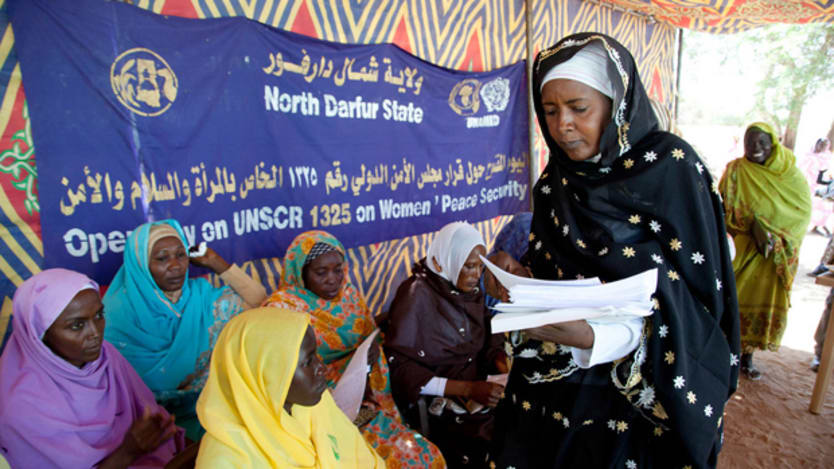
Women's history month each year highlights the gains women are making in many parts of the world. Public and private development assistance has helped support powerful and innovative leaders in government, civil society and the private sector who have made a real difference in women's lives — helping women gain increased access to health care, better education and economic opportunities, and an increased recognition that they deserve fundamental human rights.
But how do we in the development community help ensure these gains continue to advance every year regardless of the support of public and private aid budgets or project life cycles? One of the key answers lies in improving governance. Without good governance, progress in women's economic well-being, health and education will be tenuous at best. Support for the elements of good governance can and must be undertaken to ensure gender considerations are taken into account.
Good governance draws on a foundation of participation. Citizens must be fundamentally involved in deciding how government policies are developed and implemented. In addition to having all the basic human rights enshrined in the Universal Declaration of Human Rights, all citizens, men and women, must:
• Have access to (and the freedom to contribute to) news and information free of government interference.
• Be able to interact with their government officials through hearings, public fora and open meetings.
• Be able to participate in civil society organizations that advocate for their interests, educate the public or provide vital local services.
Achieving these participatory goals for both women and men is a tall order in many countries. But there are excellent initiatives underway that show what can be done, understanding that our efforts must be sensitive to the country context.
Access to information
In Azerbaijan, IREX has developed a system of Internet centers serving the more remote and under-connected areas of the country. The centers provide training in basic online skills, research, writing and multi-media journalism. In many of these regions, conservative cultural norms and tradition make it harder for women to participate. IREX has ensured that girls and women feel more comfortable coming to the centers by, among other approaches, seeking to have women staff members who can facilitate their participation and by working with local organizations with strong ties to the community.
Interact with government
IREX worked with the Liberia Women's Media Action Committee to create radio listening groups so women could be informed of the work of the Constitutional Review Committee. The groups were so successful that the women wanted to have their views heard and questions answered. So they invited the president of the committee to meet with them. More than 400 people from Kamara Town and neighboring areas turned up and were able to participate first-hand thanks to the efforts of a group of dedicated women seeking to ensure women were able to participate in this important process.
Participate in civil society
Local leaders around the world identify gender gaps and what women and girls need most to fully engage in their communities. IREX provides training and support to leaders such as Agnes Kwenda in Zimbabwe to enhance and expand the services they provide to their communities. Kwenda, founder of the Precious Life Foundation, learned the essentials to teaching women basic literacy and business skills while giving vulnerable women and teenage mothers an avenue to start earning money immediately.
Globally, many local civil society organizations undertake vital work to secure basic human rights for women through activities such as encouraging women’s political participation, educating women and girls about their rights, and reducing human trafficking. While contributing to long-term gains for women and girls, their support for women’s participation in advocacy and policy-making contributes to the improvement of governance in their countries.
The development community is striving to address gender equity. Donors such as the U.S. Agency for International Development are integrating gender considerations across their portfolios. Economic development, public health and education programs have been created to specifically target women and girls. We see more programs seeking to broadly address gender across social, economic, education and governance sectors. We support a continued and enhanced focus on gender in governance so the changes happening today can be strengthened and sustained well into the future.
Want to learn more? Check out She Builds and tweet us using #SheBuilds.
She Builds is a month-long conversation hosted by Devex in partnership with Chemonics, Creative Associates, JBS International as well as the Millennium Challenge Corp., United Nations Office for Project Services and U.K. Department for International Development.








